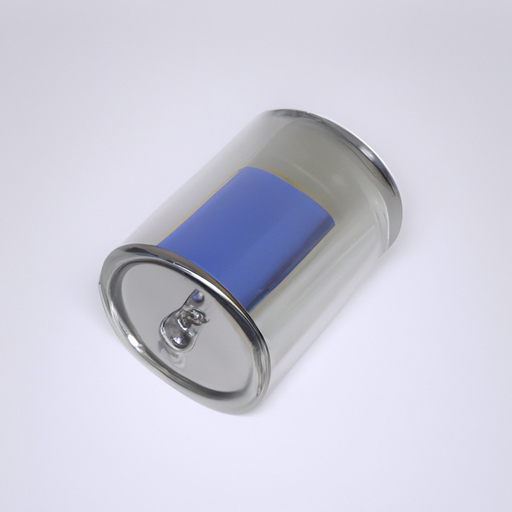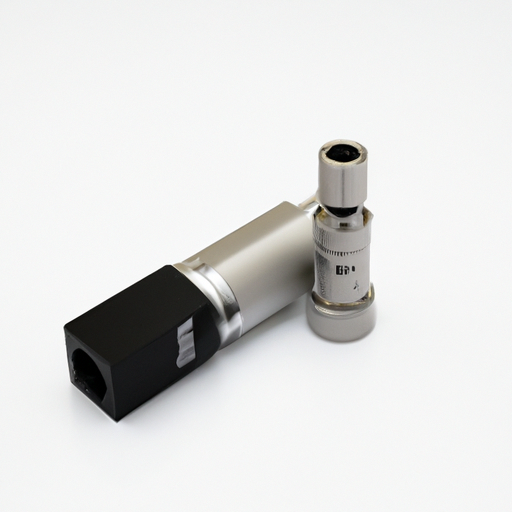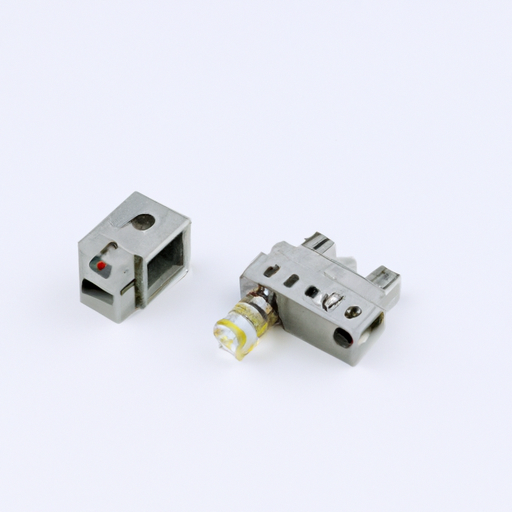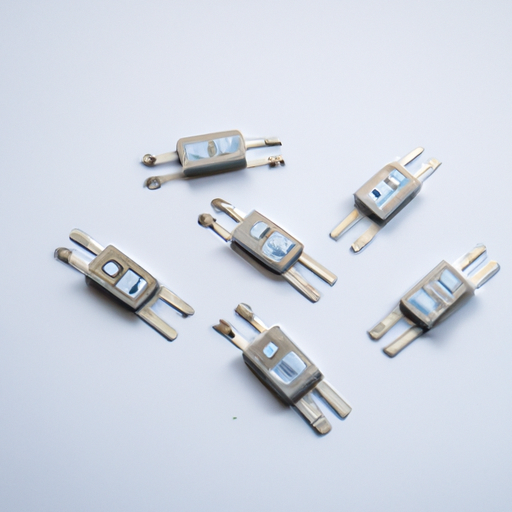What kind of product is a automotive capacitor?
What Kind of Product is an Automotive Capacitor?
I. Introduction
In the realm of automotive technology, various components work in harmony to ensure vehicles operate efficiently and reliably. Among these components, automotive capacitors play a crucial role. But what exactly are automotive capacitors, and why are they so important? This article will delve into the definition, function, and applications of automotive capacitors, exploring their significance in modern vehicles. We will also discuss the advantages and challenges associated with their use, as well as future trends in capacitor technology.
II. Understanding Capacitors
A. Basic Principles of Capacitors
At its core, a capacitor is an electronic component that stores and releases electrical energy. It consists of two conductive plates separated by an insulating material known as a dielectric. When voltage is applied across the plates, an electric field is created, allowing the capacitor to store energy. When the voltage is removed, the capacitor can release this stored energy back into the circuit.
B. Types of Capacitors
Capacitors come in various types, each suited for different applications. The most common types used in automotive applications include:
1. **Electrolytic Capacitors**: These capacitors are polarized and typically used for applications requiring high capacitance values, such as power supply smoothing.
2. **Ceramic Capacitors**: Known for their stability and reliability, ceramic capacitors are often used in high-frequency applications and for decoupling in electronic circuits.
3. **Film Capacitors**: These capacitors are made from thin plastic films and are known for their low loss and high stability, making them suitable for audio and signal processing applications.
4. **Tantalum Capacitors**: With a high capacitance-to-volume ratio, tantalum capacitors are often used in compact electronic devices, including automotive electronics.
III. Role of Capacitors in Automotive Systems
A. Power Supply Stabilization
One of the primary roles of capacitors in automotive systems is power supply stabilization. They help smooth out voltage fluctuations, ensuring that electronic components receive a consistent voltage level. This is crucial for the reliable operation of sensitive electronics.
1. **Voltage Smoothing**: Capacitors can absorb voltage spikes and dips, providing a buffer that stabilizes the power supply.
2. **Energy Storage**: Capacitors can store energy for short periods, releasing it when needed to support high-demand components, such as amplifiers in audio systems.
B. Signal Processing
Capacitors also play a vital role in signal processing within automotive electronics. They help filter out noise and ensure that signals are clean and reliable.
1. **Filtering Noise in Electronic Circuits**: Capacitors can block direct current (DC) while allowing alternating current (AC) signals to pass, making them essential for noise reduction in audio and communication systems.
2. **Timing Applications**: In timing circuits, capacitors work with resistors to create delays, which are crucial for various electronic functions.
C. Starting and Ignition Systems
Capacitors are integral to starting and ignition systems in vehicles. They help provide the necessary energy to start the engine and ensure efficient ignition.
1. **Role in Ignition Capacitors**: Ignition capacitors store energy and release it to the ignition coil, generating a high-voltage spark needed to ignite the fuel-air mixture in the engine.
2. **Capacitors in Starter Motors**: In starter motors, capacitors provide the initial surge of energy required to crank the engine, ensuring reliable starting in various conditions.
IV. Specific Applications of Automotive Capacitors
A. Audio Systems
Automotive audio systems benefit significantly from the use of capacitors. They enhance sound quality and ensure that amplifiers receive a stable power supply.
1. **Enhancing Sound Quality**: Capacitors can filter out unwanted frequencies, allowing for clearer sound reproduction.
2. **Powering Amplifiers**: High-capacitance capacitors are often used in conjunction with amplifiers to provide the necessary power during peak audio demands.
B. Engine Control Units (ECUs)
Engine control units rely on capacitors for various functions, including signal conditioning and power management.
1. **Signal Conditioning**: Capacitors help filter and stabilize signals from various sensors, ensuring accurate data is sent to the ECU for processing.
2. **Power Management**: Capacitors assist in managing power distribution within the ECU, ensuring that critical components receive the necessary energy.
C. Electric and Hybrid Vehicles
In electric and hybrid vehicles, capacitors play a pivotal role in energy recovery and battery management systems.
1. **Energy Recovery Systems**: Capacitors can store energy generated during braking, which can then be used to power the vehicle or recharge the battery.
2. **Battery Management Systems**: Capacitors help regulate the charging and discharging of batteries, ensuring optimal performance and longevity.
V. Advantages of Using Capacitors in Automotive Applications
The use of capacitors in automotive applications offers several advantages:
A. Improved Performance and Reliability
Capacitors enhance the performance of automotive electronics by providing stable power and filtering out noise, leading to more reliable operation.
B. Enhanced Energy Efficiency
By smoothing out voltage fluctuations and providing energy storage, capacitors contribute to the overall energy efficiency of automotive systems.
C. Compact Size and Lightweight Design
Many capacitors, especially ceramic and film types, are compact and lightweight, making them ideal for modern vehicles where space and weight are critical considerations.
VI. Challenges and Considerations
While automotive capacitors offer numerous benefits, there are also challenges and considerations to keep in mind:
A. Temperature and Environmental Factors
Capacitors can be sensitive to temperature and environmental conditions. High temperatures can lead to degradation, affecting performance and lifespan.
B. Voltage Ratings and Specifications
It is essential to select capacitors with appropriate voltage ratings and specifications to ensure they can handle the demands of automotive applications.
C. Lifespan and Degradation Over Time
Capacitors can degrade over time, leading to reduced performance. Regular maintenance and monitoring are necessary to ensure their longevity.
VII. Future Trends in Automotive Capacitor Technology
As automotive technology continues to evolve, so too does the role of capacitors. Several trends are shaping the future of automotive capacitor technology:
A. Advancements in Materials and Design
Innovations in materials and design are leading to capacitors with improved performance, higher capacitance values, and greater reliability.
B. Integration with Emerging Technologies
Capacitors are increasingly being integrated with emerging technologies, such as electric vehicles and autonomous driving systems, where their role in energy management and signal processing is becoming more critical.
C. Sustainability and Recycling Considerations
As the automotive industry moves towards sustainability, the recycling and disposal of capacitors will become an important consideration, prompting the development of eco-friendly capacitor technologies.
VIII. Conclusion
In conclusion, automotive capacitors are essential components that play a vital role in the performance and reliability of modern vehicles. From power supply stabilization to signal processing and energy management, their applications are diverse and critical. As technology continues to advance, the importance of capacitors in automotive systems will only grow, making it essential for industry professionals and enthusiasts alike to understand their significance. We encourage further exploration of automotive electronics and the innovations that will shape the future of the automotive industry.
IX. References
1. "Capacitors in Automotive Applications," Journal of Automotive Engineering.
2. "Understanding Capacitors: Types and Applications," Electronics Weekly.
3. "The Role of Capacitors in Electric Vehicles," IEEE Transactions on Power Electronics.
4. "Advancements in Capacitor Technology," Journal of Materials Science.







